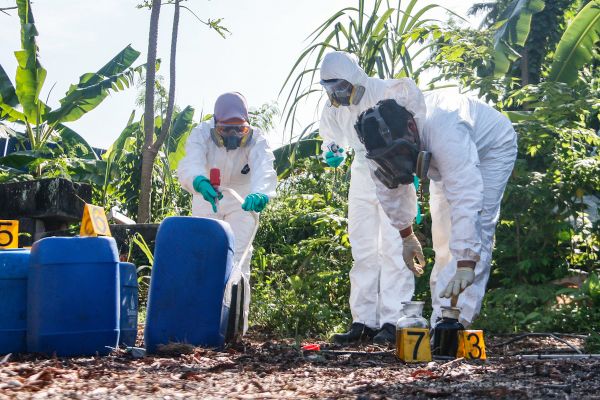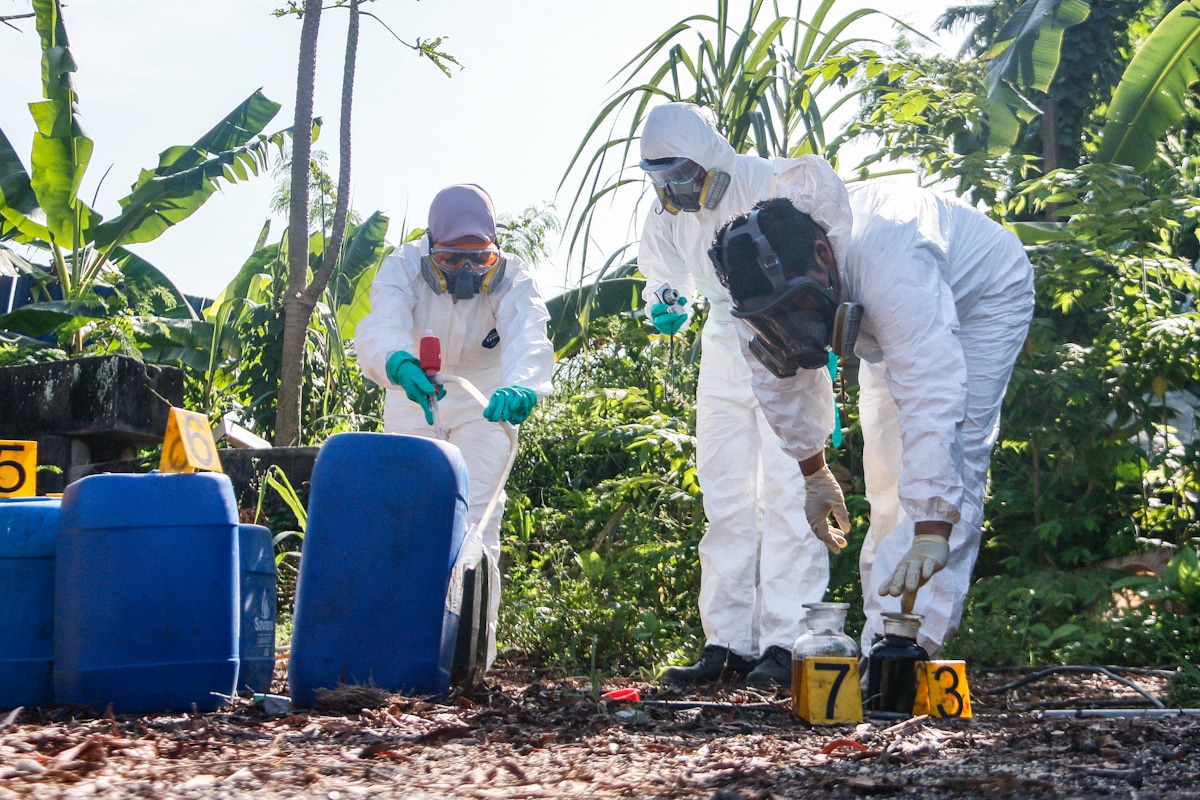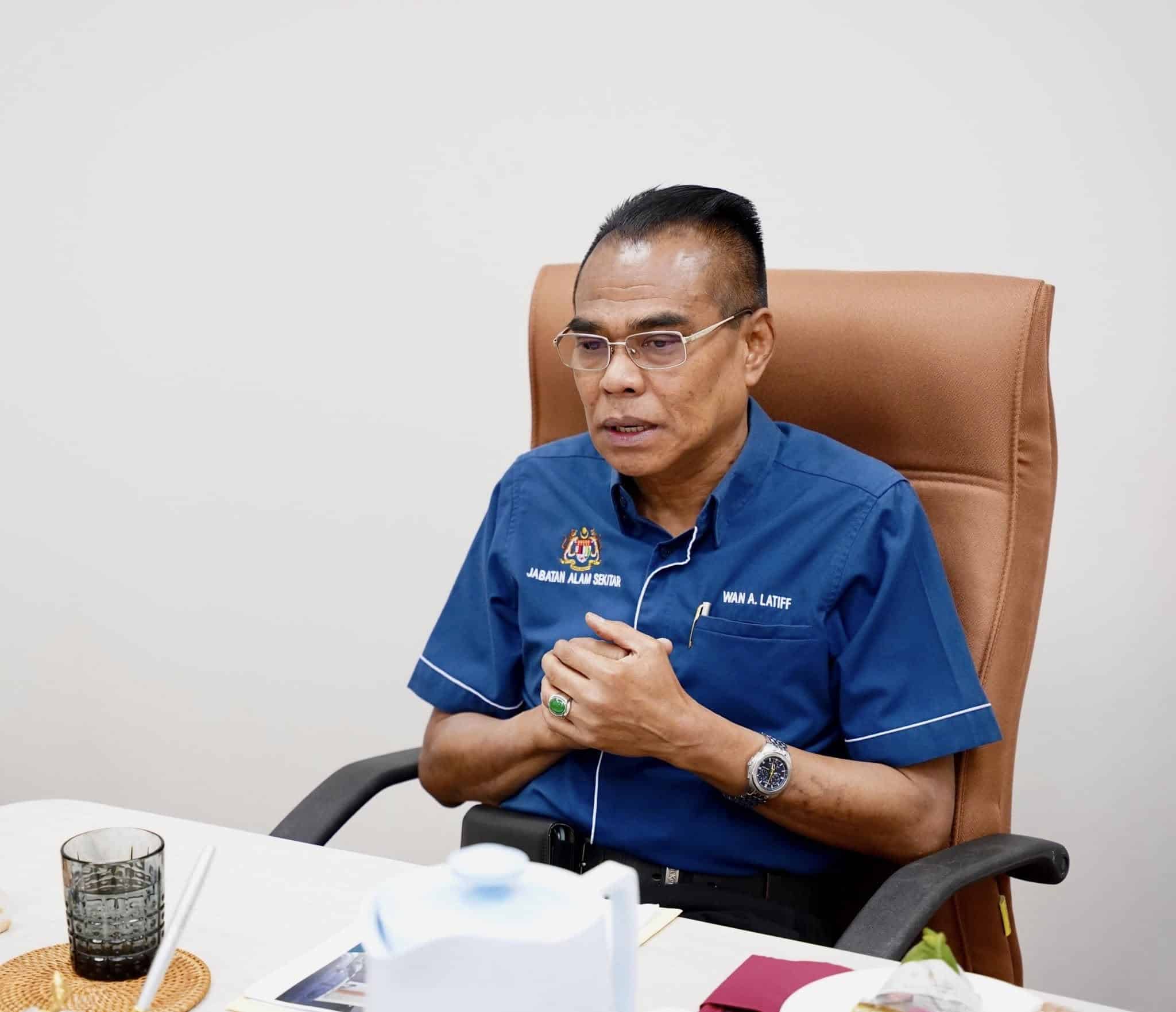KUALA LUMPUR, Nov 3 — The Environment Department (DOE) needs about 3,000 additional officers to strengthen monitoring and enforcement efforts nationwide, said its director-general Datuk Wan Abdul Latiff Wan Jaffar.
The proposal for additional staff has been submitted to the government, including the Public Service Department (JPA), as part of a plan to strengthen the organisation and improve pollution control and enforcement of environmental laws.
“This proposal has been included in the department’s improvement plan and is now being refined before being resubmitted to the government. We hope it will be approved so that our monitoring and enforcement work can be further improved,” he told the press today.
Latiff added that the DOE currently has 1,111 technical and enforcement officers responsible for monitoring more than 64,000 fixed pollution sources nationwide, including factories, sewage treatment plants, and development projects that require Environmental Impact Assessment (EIA) reports.
This number does not include other sources of pollution, such as the over 33 million motor vehicles and 3,000 petrol stations, which are also under DOE monitoring, as well as the more than 10,000 pollution complaints received each year.
With the current number of personnel, the DOE can conduct only about 20,000 inspections annually, well short of the 64,000 premises that require inspection, making it necessary to focus on high-risk locations.
“Priority is given to factories that have faced previous action, have complaint records, are located near water sources, produce toxic and hazardous waste, or have high pollution levels,” he said.
Latiff noted that each DOE enforcement team currently conducts about 16 inspections per month, in line with existing work norms.
“From this calculation, we found that around 3,000 more officers are needed to ensure full and effective monitoring nationwide,” he said.
At the same time, the DOE has intensified enforcement against illegal processing of electrical and electronic waste (e-waste) through joint operations with the police (PDRM) and the Royal Malaysian Customs Department.
This year alone, two major operations under Ops Hazard were carried out in February and July, focusing on illegal processing of imported e-waste on premises using false declarations to avoid restrictions.
“When such items are confirmed as e-waste, we issue a notice for them to be returned to the country of origin in line with Malaysia’s obligations under the Basel Convention, which controls the cross-border movement of hazardous waste.
“Most of this illegal e-waste comes from developed countries such as the United States and Europe, and we work closely with the authorities in those countries to return the waste,” Latiff said.
Via the two Ops Hazard operations, action was taken against 47 illegal premises, and various e-waste materials were seized for forfeiture and auction to licensed operators.
Another operation, called Ops Dermaga, was carried out in September with PDRM to curb e-waste smuggling at the country’s main entry points.
“This e-waste enters the country illegally, is processed in unlicensed factories, and often involves undocumented workers. We are strengthening cooperation with other agencies to stop this activity completely,” he said.



